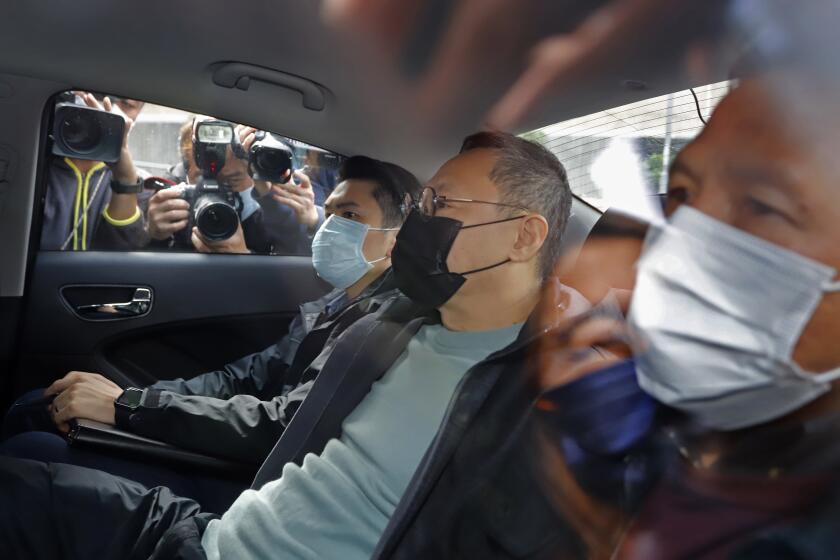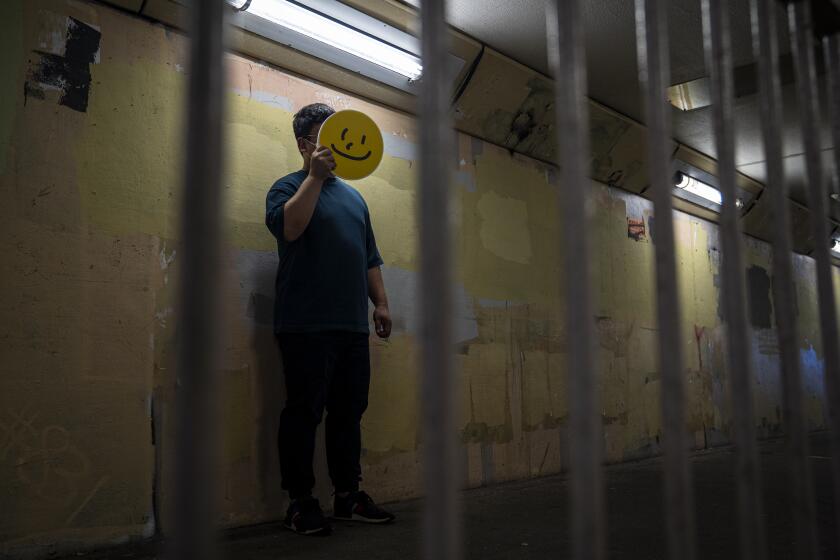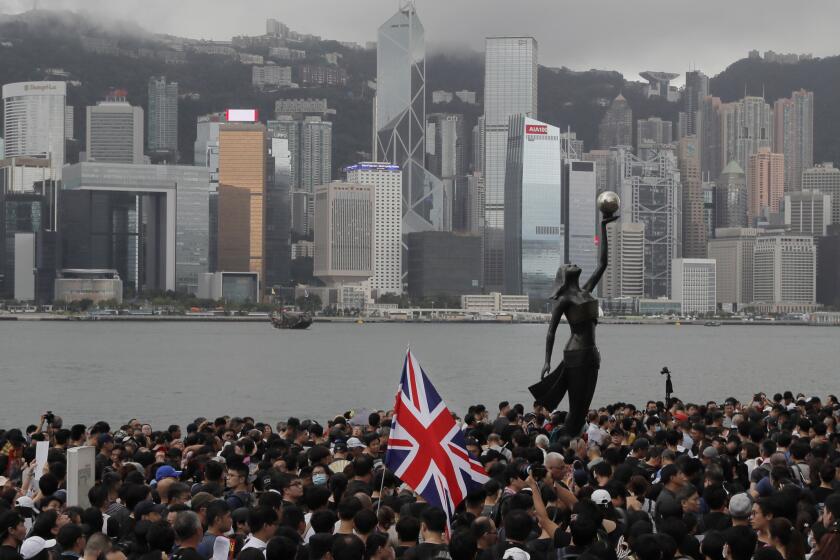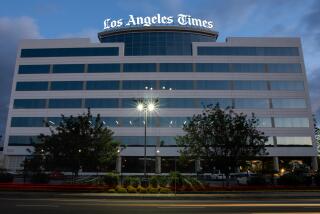Beleaguered pro-democracy Hong Kong newspaper Apple Daily says it’s closing down
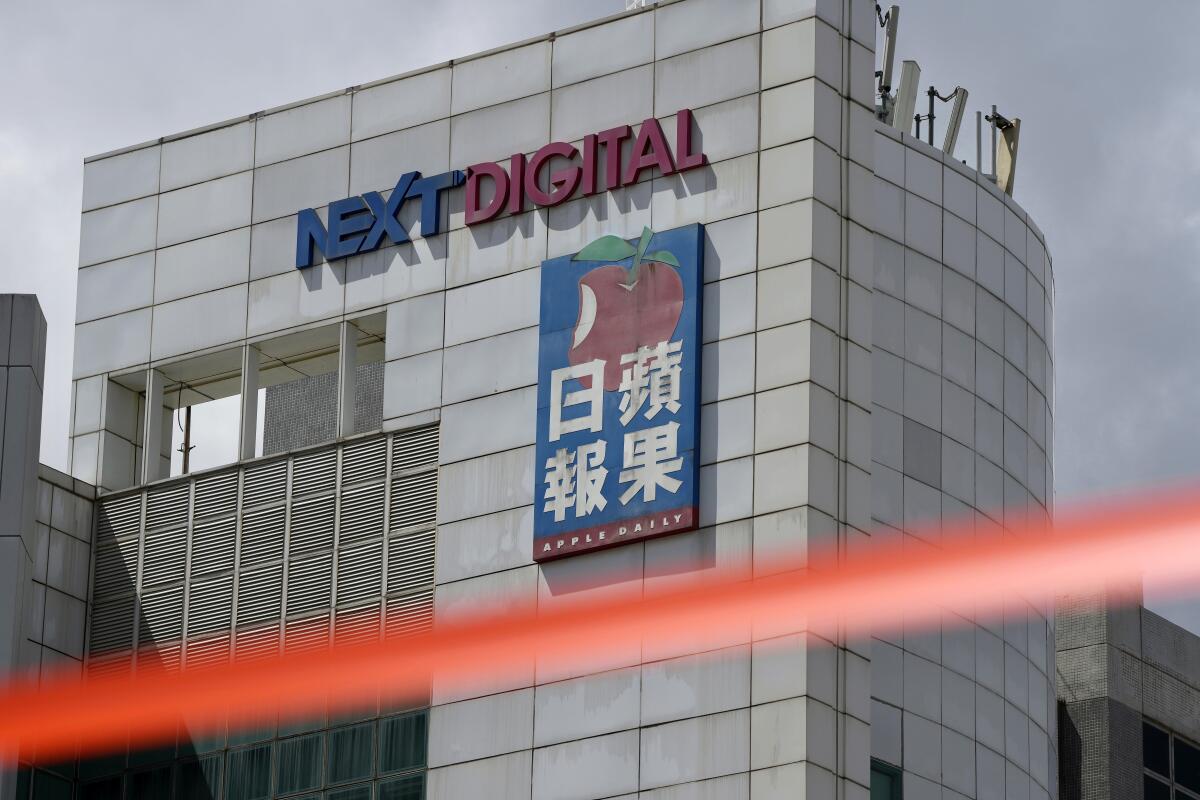
HONG KONG — Hong Kong’s leading independent newspaper, Apple Daily, said it was closing down Wednesday and would print its final issue Thursday, succumbing to an unprecedented campaign by the Beijing-backed government to silence a popular tabloid at the center of the city’s democracy movement.
The decision came hours after police arrested a columnist for the paper and days after authorities froze $2.3 million in company assets and arrested five editors and executives under the territory’s draconian national security law, which was imposed last year by mainland China’s ruling Communist Party.
The newspaper is accused of conspiring with foreign countries to slap sanctions on China and Hong Kong over the territory’s diminished autonomy — charges largely viewed as a pretext by authorities to muzzle dissent.
The board of Apple Daily’s parent company, Next Digital, issued a statement citing the “current circumstances prevailing in Hong Kong” as the reason why the newspaper would print its last issue Thursday.
The closure brings an end to a newspaper that crashed onto the scene in 1995, two years before the handover of the former British colony to China, with a mixture of lurid reporting, gossip and coverage of the Chinese mainland that irked the communist government.
Owned and operated by the brash apparel magnate Jimmy Lai, Apple Daily made little effort to hide its editorial stance supporting democracy and Hong Kong’s continued autonomy, which was guaranteed for 50 years under the handover agreement signed by Britain and China.
Beijing’s dismantling of Hong Kong’s autonomy is all but complete. Those who dared challenge its authority now face years in prison.
The 72-year-old Lai has been jailed since December and is facing multiple charges, including participating in an illegal demonstration and violating the national security law.
Experts say Apple Daily’s days were numbered after China launched a broad crackdown on dissent following protests in 2019 over an extradition bill that brought millions out onto Hong Kong’s streets and sparked months of violent demonstrations.
Armed with the nebulously worded national security law, which targets subversion, separatism and collusion with foreign forces, Beijing has been systematically dismantling pillars of Hong Kong society that formerly distinguished the Asian financial hub of 7 million people from the authoritarian mainland.
Since last year, almost every leading democracy figure has been jailed. The city’s legislature no longer includes opposition members, schools have revamped teaching materials and fired teachers critical of China, and art exhibits and cinemas are censoring politically sensitive content.
China’s ‘purification’ of classrooms: A new law erases history, silences teachers and rewrites books
China’s crackdown on Hong Kong is purging teachers, rewriting textbooks and increasing pressure on schools over what to put in the minds of students. A new national security law has endangered freedom of thought and expression.
The government campaign against Apple Daily, which included raids of its newsroom by hundreds of police officers, caps months of scrutiny of Hong Kong’s once-vibrant independent media landscape.
This year, officials gutted the city’s public broadcaster, Radio Television Hong Kong, by letting go reporters, axing shows considered critical of the government and appointing a new editor in chief with no media experience.
The city’s chief executive, Carrie Lam, warned in a news conference Tuesday that news organizations must not “subvert” the government and urged journalists to conduct only “normal journalistic work.”
The global press freedom index compiled by Reporters Without Borders this year downgraded Hong Kong to 80th place, out of 180 countries, from 58th in 2013.
Thousands of people are fleeing Hong Kong amid a crackdown by Beijing that prompted Britain to loosen visa rules for residents of its former colony.
The closure of Apple Daily is “a big blow to the freedom of the press and freedom of speech in Hong Kong,” said Ronson Chan, chairman of the Hong Kong Journalists Assn. “Hong Kong people are already losing all different kinds of freedom. Under the national security law, the red line is hidden and invisible.”
Chan, an editor at Stand News, a digital news site that could soon be the target of authorities for its critical coverage of the Hong Kong government, said there was already a chilling effect on the media after the raids on Apple Daily.
“Other media organizations will definitely be scared,” Chan said. “If police showed up at our door tomorrow asking to search us and arrest us, I can only say I wouldn’t be shocked.”
Supporters of Apple Daily have been rushing to buy copies of the newspaper in recent days in anticipation of its closure. Some stood outside the company’s offices Wednesday under pouring rain shouting words of support at employees they spotted outside the office.
Start your day right
Sign up for Essential California for the L.A. Times biggest news, features and recommendations in your inbox six days a week.
You may occasionally receive promotional content from the Los Angeles Times.
Reporters at the company said colleagues were full of sadness, but continued working throughout the day filing their final stories before the 10 p.m. daily deadline.
“I knew this day would come, and even though I’ve been mentally preparing, I’m still shocked,” said an Apple Daily journalist who has been with the paper since 2018. She spoke on condition of anonymity for fear of attracting the attention of authorities who arrested her colleagues.
“All we can do is persevere to the last minute and keep reporting the truth,” she said.
Times staff writer Pierson reported from Singapore and special correspondent Liu from Hong Kong.
More to Read
Sign up for Essential California
The most important California stories and recommendations in your inbox every morning.
You may occasionally receive promotional content from the Los Angeles Times.
